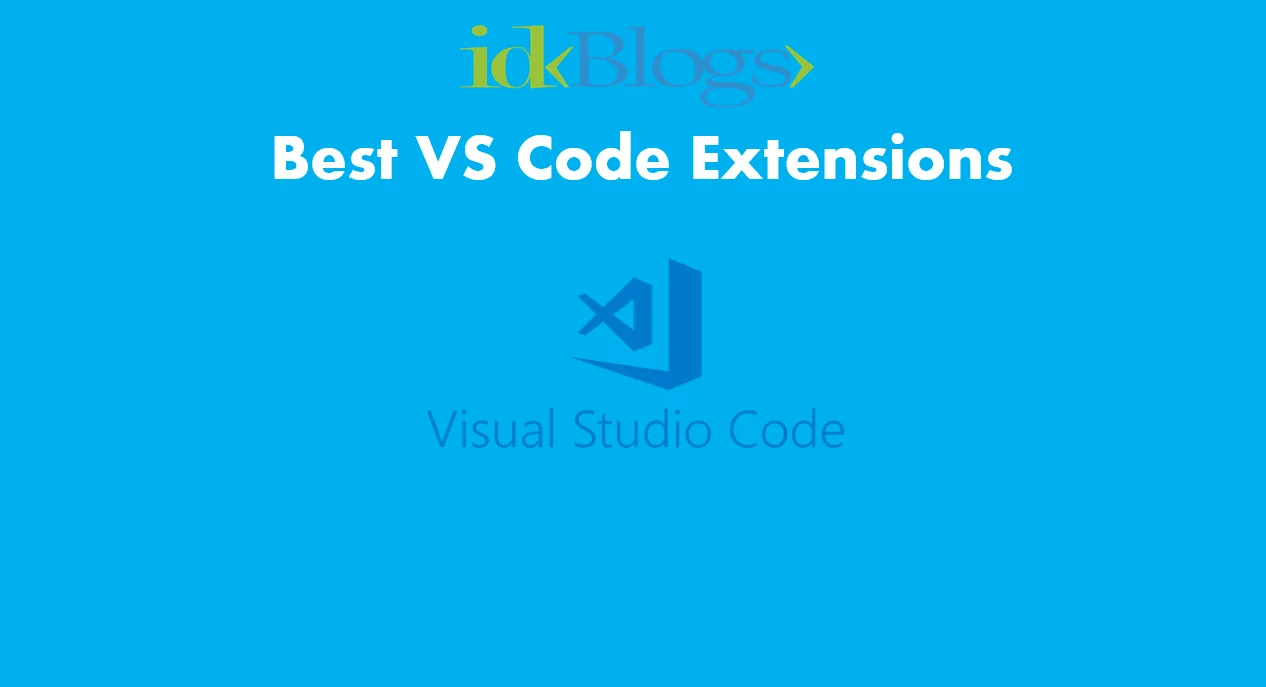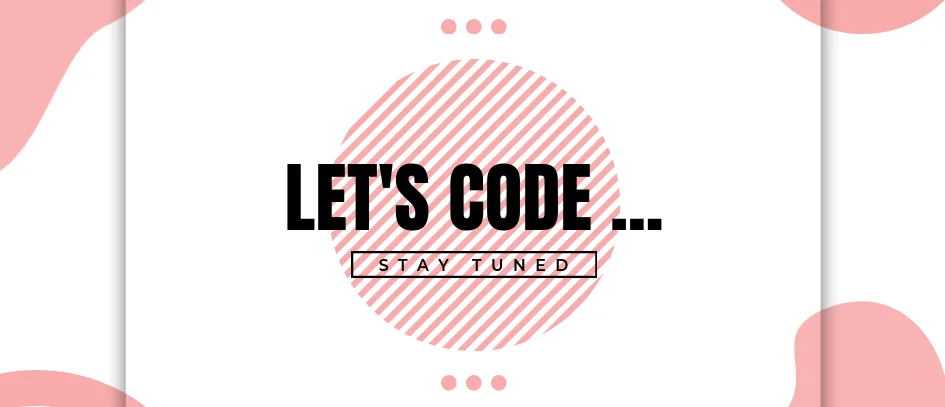
What is Managerial Round Interview? [Part-2]
If you haven't already, we highly recommend that you read Managerial Round Interview Questions [Part-1] before diving into Part 2 of
this
series. Managerial Round Interview Questions [Part-1] provides a
foundation for
understanding what a managerial round interview is, why it's important, and what the interviewer is
typically
looking for in a candidate.
By reading Part 1 first, you'll gain a better understanding of the context and purpose behind the
interview
questions discussed in Managerial Round Interview Questions [Part-1]. You'll also be
better equipped to prepare effectively for a managerial round interview and increase your chances of
success.
So, take the time to read "What is Managerial Round Interview? [Part-1]" before proceeding to Part
2. We're
confident that the knowledge you gain from reading both parts of this series will be invaluable in your
quest for
landing your dream managerial position.
In these 2 article, you will get understanding of following questions:
-
Tell me about yourself
-
What are your day to day activities?
-
What do you know about the company?
-
What are your achievements?
-
What was your challenging work?
-
Why do you want to change the current company?
-
Why do you want to join this company?
-
What do you do when you have conflicts with your co-workers?
-
What if you criticism from your seniors?
-
What if someone/team is disagrees with your ideas?
-
What is your ideal work environment?
-
What are your failures till now?
-
What are your long term goals?
-
What are your hobbies?
-
How do you set priorities for your team and yourself at work?
-
What leadership skills do you have in yourself?
-
What do you do for your Learning and skill Development?
-
What keeps you motivated in high pressure?
-
Why should we hire you?
-
What is your Salary Expectations?
-
How you manage your stress during work?
-
What is the definition of success in your terms?
-
What are your good works that you did till now?
-
What Out of the box you did?
-
What are your weakness?
-
Do you have any questions?
-
How to end the Managerial Discussion?
What are your hobbies?
When asked about your hobbies in a managerial interview, it's important to keep in mind that the interviewer is trying to get to know you as a person beyond your work experience. Here are some tips on how to answer this question:
- Be honest: Share your genuine hobbies and interests. Avoid making up hobbies that you don't actually enjoy or exaggerating your level of interest in a particular hobby.
- Highlight transferable skills: If possible, highlight hobbies that demonstrate transferable skills that can be relevant to the job. For example, if you enjoy playing team sports, this could demonstrate your ability to work well in a team and communicate effectively.
- Show balance: Share a variety of hobbies that demonstrate a balance between work and personal life. This will show that you have interests beyond work and are able to maintain a healthy work-life balance.
- Be enthusiastic: Convey your enthusiasm and passion for your hobbies. This will help the interviewer to see you as a well-rounded person with diverse interests.
- Be concise: Keep your answer brief and to the point, as the interviewer is likely more interested in your work experience and qualifications.
Example:
You could say something like: "In my free time, I enjoy hiking, playing guitar, and volunteering at a local animal shelter. I find that these activities help me to recharge and maintain a healthy work-life balance. Additionally, I think that volunteering at the animal shelter has helped me to develop skills in empathy and teamwork, which are also relevant in a professional setting."
How do you set priorities for your team and yourself at work?
When asked about how you set priorities for your team and yourself in a managerial interview, it's important to demonstrate your ability to manage your time effectively and ensure that your team is working on the most important tasks. Here are some tips on how to answer this question:
- Start with the big picture: Explain how you align your team's priorities with the company's goals and objectives. Discuss how you review the company's strategic plans and break them down into smaller goals that your team can work towards.
- Set clear goals: Clearly communicate the goals and expectations for your team and yourself. This includes setting deadlines and milestones to ensure that everyone is working towards the same goals.
- Prioritize tasks: Discuss how you determine which tasks are most important and prioritize them accordingly. This includes reviewing deadlines, evaluating the impact of the task on the overall project, and assessing the resources available to complete the task.
- Delegate tasks: Discuss how you delegate tasks to team members based on their strengths and expertise. This includes evaluating each team member's workload and skills, and assigning tasks accordingly.
- Monitor progress: Explain how you monitor progress towards goals and milestones, and how you adjust priorities as needed based on changes in the project scope or timeline.
- Be flexible: Mention that you are open to feedback and able to adjust priorities based on new information or changing circumstances.
Example:
You could say something like: "When setting priorities for my team and myself, I start by reviewing the company's strategic plans and breaking them down into smaller goals that my team can work towards. I set clear goals and expectations, and prioritize tasks based on deadlines, impact, and available resources. I delegate tasks to team members based on their strengths and expertise, and monitor progress towards goals and milestones. I am always open to feedback and am able to adjust priorities as needed based on changes in the project scope or timeline."
What leadership skills do you have in yourself?
When asked about your leadership skills in a managerial interview, it's important to demonstrate your ability to lead a team effectively and achieve common goals. Here are some tips on how to answer this question:
- Communicate clearly: Discuss how you effectively communicate with team members to ensure everyone is on the same page. This includes setting clear expectations, providing feedback, and being available to answer questions.
- Inspire and motivate: Explain how you motivate your team members to achieve their goals and feel invested in their work. This includes recognizing and rewarding achievements, providing opportunities for growth and development, and creating a positive work environment.
- Delegate effectively: Discuss how you delegate tasks to team members based on their strengths and expertise, and ensure that everyone has the resources they need to complete their tasks.
- Foster collaboration: Explain how you encourage collaboration and teamwork, and how you resolve conflicts when they arise.
- Lead by example: Discuss how you lead by example, by setting a positive tone and modeling the behavior you expect from your team members. This includes being punctual, professional, and ethical.Adapt to change: Mention that you are able to adapt to changing circumstances and make decisions quickly when necessary.
- Develop and mentor: Explain how you develop and mentor team members, providing feedback and opportunities for growth and development.
Example:
You could say something like: "I believe that effective leadership involves clear communication, motivation, delegation, collaboration, leading by example, adaptability, and development. I communicate clearly with team members to ensure everyone is on the same page, inspire and motivate team members to achieve their goals, delegate tasks effectively, foster collaboration, lead by example, adapt to change, and develop team members through feedback and opportunities for growth and development."
Example:
I have leadership qualities from the childhood, I was monitor in my school, CR in college, VP in
technical fest Incord, anchor in freshers party and technical fest.
In the last company I was
house caption of “The Incredibles”, it was a 50 employee group.
I am mentoring the
freshers and the junior developers.
Currently leading the team. There are 5-10 developer works in
my leadership. I resolve their problems and provide my solutions. I do the team meeting very often apart
from DSM.
I provide Training and Sessions on different topics.
What do you do for your Learning and skill Development?
When asked about your learning and development, it's essential to demonstrate your commitment to ongoing growth and development. Here are some tips to help you craft your response:
- Highlight your willingness to learn: Start by expressing your eagerness to develop new skills and knowledge. Talk about how you enjoy learning new things and seek out opportunities to expand your expertise.
- Discuss your learning methods: Share the ways you prefer to learn, such as through books, podcasts, online courses, conferences, or mentorship. Emphasize that you're open to different learning methods and are willing to try new approaches.
- Mention your current learning pursuits: Discuss any current courses or certifications you're pursuing and how they relate to your current role or future aspirations. Talk about how you're applying what you're learning to improve your performance.
- Talk about your future goals: Share your long-term career aspirations and how you plan to achieve them. Mention any new skills or knowledge you want to develop to progress in your career.
Overall, your answer should demonstrate your commitment to continuous learning, your current learning pursuits, and your future goals. Be specific about how you plan to develop yourself and how your learning will benefit the organization.
Example:
For my learning and development I read blogs, I do online course on Udemy, Online masterclass.
I take
training and sessions, watch YouTube videos.
I am active on Stackoverflow, I give answers on
Stackoverflow. I use internal LnD platform like GARI, MyLearning NEXT etc for learning.
What keeps you motivated in high pressure?
When asked about what keeps you motivated in high-pressure situations, the interviewer is looking for insight into your ability to handle stress and remain focused on achieving your goals. Here are some tips to help you craft your response:
- Emphasize the importance of a positive mindset: Start by discussing the role of a positive mindset in high-pressure situations. Explain that you try to maintain a positive outlook and focus on what you can control rather than what you cannot.
- Share your coping mechanisms: Discuss the strategies you use to manage stress, such as exercise, meditation, or taking breaks. Highlight how these techniques help you stay focused and motivated.
- Discuss the importance of teamwork: Explain how collaboration and support from colleagues help you remain motivated and perform well under pressure. Share examples of how you have worked with others to achieve challenging goals.
- Mention your long-term goals: Share your career aspirations and how the current high-pressure situation fits into your broader career goals. Discuss how the pressure is driving you to achieve those goals and how you are committed to persevering through challenging times.
Overall, your answer should demonstrate your ability to maintain a positive outlook and stay focused under pressure, your coping mechanisms for stress, your appreciation of teamwork, and your commitment to your long-term goals.
Example:
I love my work and believe in what I do, I believe in myself. I put my goal on the calendar/tools.
I
set small goals to build momentum and work toward my goal as a habit.
I plan for imperfection and
track my progress, reward myself for the little wins as well as the big ones.
I change negativity to
positive peer pressure.
I do some mood lifting.
I always remember my “why.”
Example:
-
During the festival seasons people are on leave so meeting the timeline is a crucial part, we plan the leave and work accordingly.
-
In CFO project- there was an event coming, a feature under development, creating a lot of new users, preparing event materials, and providing the documentations for the feature.
Why should we hire you?
When asked, "Why should we hire you?" in a managerial interview, it's essential to showcase your skills, experience, and qualifications that make you a great fit for the position. Here are some tips to help you craft your response:
-
Highlight your relevant skills and experience: Start by discussing your experience and skills that are directly relevant to the position. Mention any achievements, successes, or significant contributions you've made in your previous roles that are transferable to the new position.
-
Emphasize your leadership qualities: Discuss your leadership style and any successes you've had in leading teams or managing projects. Highlight how your leadership style can add value to the organization.
-
Show your passion and commitment: Express your enthusiasm and passion for the position and the organization. Share why you are particularly interested in the role and how it aligns with your long-term career goals.
-
Mention your potential contributions: Discuss how your experience, skills, and qualifications can contribute to the organization's goals and objectives. Explain how you can add value to the team and help the organization achieve its goals.
Overall, your answer should showcase your relevant experience, leadership qualities, passion, commitment, and potential contributions to the organization. Be specific and provide examples to back up your claims.
Example:
I read the job description before applying it and I found more similarities and skills that I have.
I’ve been doing the exact type of roles and responsibilities that you require. I have good experience
in software development.I have successfully completed multiple projects. Have exposure as a fullStack
developer and I am quick learner.
I am a leader from starting - School, colleague, Universities,
Companies, Currently leading the team.
I am a team player- Got Wow Team award, Runner Up in the
foundation day festival, Lead the teams.
I did some repleted certifications ie. AWS CCP, Aspiring
Architects, YEP, Decision Making, Presenting Skills, system design etc. I have good experience in the
multiple domains. I cleared the last N interview, that's why I am here. I love this job and I am
passionate about it.
What is your Salary Expectations?
When asked about your salary expectations, it's essential to strike a balance between being reasonable and not undervaluing your skills and experience. Here are some tips to help you craft your response:
- Do your research: Before the interview, research the typical salary range for the position and location. Use this information as a starting point for your answer.
- Be flexible: Be open to negotiating the salary and benefits package. Express your willingness to discuss compensation based on the total package, including benefits, bonuses, and other perks.
- Highlight your skills and experience: Discuss your skills, experience, and qualifications that make you a valuable candidate for the position. Emphasize how your experience and expertise can benefit the organization.
- Focus on the value you bring: Rather than solely focusing on the salary, emphasize how you can contribute to the organization's success. Share examples of your accomplishments and successes in previous roles.
- Be confident: When discussing salary expectations, maintain a confident and professional demeanor. Make it clear that you're interested in the role and are willing to work with the organization to find a mutually beneficial compensation package.
Overall, your answer should demonstrate your research, flexibility, value proposition, and confidence. Be transparent, and provide a range or a specific figure based on your research and personal circumstances.
Example:
I'm looking for a competitive salary that reflects my qualifications and experience. And I know your organization will fairly offer the same.
Also, based on my research and the requirements of the role as I understand them, I would expect a salary in the range of 40 LPA to 45 LPA.
How you manage your stress during work?
When asked about how you manage stress during work, the interviewer is looking for insight into your coping mechanisms and how you deal with stressful situations. Here are some tips to help you craft your response:
- Discuss your strategies for managing stress: Start by discussing the techniques you use to manage stress. These could include deep breathing exercises, taking breaks, or practicing mindfulness.
- Share an example of a stressful situation: Provide an example of a stressful situation you've encountered in the past and how you managed it effectively. Explain the steps you took to resolve the situation and how you kept calm and focused.
- Highlight the importance of work-life balance: Explain how you maintain a healthy work-life balance to minimize stress levels. This could include taking breaks throughout the day, prioritizing your workload, and setting boundaries between work and personal time.
- Discuss how you prioritize self-care: Emphasize the importance of self-care and how you prioritize activities such as exercise, socializing with friends, or pursuing hobbies to maintain a healthy work-life balance.
- Show your willingness to seek help: Express your willingness to seek help from colleagues, managers, or outside resources if needed.
Overall, your answer should demonstrate your strategies for managing stress, ability to handle challenging situations, focus on work-life balance and self-care, and willingness to seek help if necessary. Be specific and provide examples to back up your claims.
Example:
When I have stress then I remember my old achievements. I compare my older tough situation and how I managed
all that very well in the past and I take positivity from there.
I walk and meet friends and family.
I
play Guitar. I go to Gym and spend a little more time, gym keep away stress from me. I write blogs, spend
some time on instagram
What is the definition of success in your terms?
When asked about your definition of success, the interviewer wants to understand your values and what motivates you. Here are some tips to help you craft your response:
- Define success in your own terms: Start by defining what success means to you. Consider what motivates you and what you value in your personal and professional life.
- Emphasize achieving goals: Discuss how achieving goals and accomplishing objectives is an important part of success for you. Emphasize how setting and achieving measurable goals helps you stay focused and motivated.
- Highlight the importance of growth and development: Explain how personal and professional growth is a critical component of success for you. Highlight how continuous learning, improving skills, and seeking new challenges is essential to achieving success.
- Discuss the importance of making a positive impact: Emphasize how making a positive impact on others and the organization is essential to achieving success. Share how you strive to make a difference in people's lives, the community, or the organization.
- Be genuine: Ensure that your definition of success aligns with your personal and professional values. Be honest and authentic in your response.
Overall, your answer should demonstrate your values, what motivates you, and how you define success in your personal and professional life. Be specific and provide examples to back up your claims.
Example:
I consider reaching both small and large milestones towards a goal as a success.
“I define success as meeting a combination of company and personal goals and helping my team do the same. I believe that effective goals motivate us to push ourselves and grow. As a leader, I also want my team to feel capable of achieving their goals as well as the company’s objectives, so I make it a priority to personally help them meet individualized milestones as well."
What are your good works that you did till now?
When asked about the good work you've done until now, the interviewer wants to understand your achievements and accomplishments. Here are some tips to help you craft your response:
- Choose relevant examples: Choose examples of your work that are relevant to the position you're interviewing for. Select projects or accomplishments that showcase your skills and experience.
- Explain the context: Provide context for your work and explain the situation, the problem, and the objective you were trying to achieve.
- Detail your contributions: Describe the specific contributions you made to the project or accomplishment, highlighting any leadership or team-building skills you demonstrated.
- Highlight the results: Emphasize the positive results and outcomes of your work, such as increased productivity, revenue, or customer satisfaction.
- Show humility: Be humble and avoid bragging. Acknowledge the contributions of others who may have played a role in the success of the project or accomplishment.
Overall, your answer should demonstrate your skills, experience, and accomplishments. Choose examples that are relevant and impactful, provide context and detail your contributions, highlight the results, and show humility. Be specific and provide examples to back up your claims.
Example:
[NIYO] I Implemented referral and Loyalty, System Design, Database Design,HLD and LLD, Ci/CD, Kubernetes, AWS
Secret manager, GCP Firestore, Kafka.
[Xendit]: I was in Invoice and Checkout team. I worked on
Create Invoice, Basket Items, Multiple Admin Fee, Invoice Settings. Also worked on Notifications - SMS,
EMAIL, WA, Viber using FCM, Firebase, RabbitMQ.
[McKinsey & Company]: I worked on CEO and CFO
apps, Managed the whole backend, grouping, publishing events, sending notifications, sending user
invitations, bulk user registration, Elasticsearch, Publishing Articles, podcasts, webcasts, analytics
reports.
all the above my works are best works for me, apart from this I help others physically, mentally and financially.
What Out of the box you did?
When asked about out of the box work you've done, the interviewer wants to understand your creativity and problem-solving skills. Here are some tips to help you craft your response:
- Provide context: Explain the situation or problem that required an out of the box solution. Describe any constraints or challenges you faced.
- Describe your approach: Detail your approach to finding a unique or creative solution. Explain any research, brainstorming, or collaboration you did.
- Explain your solution: Describe your out of the box solution and how it solved the problem. Explain how your solution was different from traditional approaches and why it was effective.
- Highlight the impact: Emphasize the positive impact of your solution, such as increased efficiency, cost savings, or customer satisfaction.
- Provide examples: Provide specific examples of out of the box work you've done, such as introducing a new process or implementing a new technology.
Overall, your answer should demonstrate your creativity, problem-solving skills, and ability to think outside the box. Provide context, describe your approach, explain your solution, highlight the impact, and provide examples. Be specific and provide examples to back up your claims.
Example:
I have worked a lot and I think those worked should be count as out of the box.
- I Proposed solution for flagging tools like Launch Darkly, In my recent work, we were facing problem to control the feature deployment and testing. So I suggested for feature flag.
- Introduced the Secret manager.
- Developed end to end features event management in McKinney and got appreciation.
- Script to add user in the system in CEO and CFO app
- In the app, after sending email its shows to open email to check, its distracting the users, I gave suggestions to remove the open email part.
- Provide a lot of UI UX related ideas like in sending notification select box was vertical i gave Idea to make it horizontal.
- Refer and Feature in Niyo
- Completed the AWS certification "AWS Certified CCP".
- Completed the certification "Aspiring Architects"
- YEP Program completed, limited people
- Invited by clients onsite in Indonesia
- Got appreciation by every clients
- Received Wow award for accountability
I also provides lot of ideas and suggestion for better work and skill development:
- Code review session every week.
- New technology awareness - Video session every 15 days. (Sustainability, 5G, ChatGPT, google bard, new devices launched, ios16, angular 15, Android 12, Apple’s Smart Water Bottle, VR systems, Humanoid Robot: America, Color Changing Cars: BMW IX Flow, cutting-edge LED television)
- All hand meet
- Employee Recognition - Movie Ticket every milestone
What are your weakness?
In a managerial interview, you might want to focus on a weakness that you have recognized in yourself and have taken steps to improve. For example, you could mention that you used to struggle with delegation and taking on too much work yourself, but have since learned the importance of building a strong team and delegating tasks effectively.
It's important to show that you are self-aware, proactive, and committed to personal and professional development. Avoid mentioning weaknesses that could directly impact your ability to perform in the managerial role, such as poor communication skills or difficulty in making tough decisions.
Remember, the interviewer wants to see that you are able to reflect on your own performance and take steps to improve, so be honest and authentic in your response.
Example:
- I take initiative, When there is some requirements of something that I can do, I won't stop myself
to initiate that things, so sometime its kind of ad-hoc to manage along with my prioritize
work.
Later, I improved myself on this, So, I still raise my hand for initiative but I also mention my availability and how far I can help in, I can lead if someone wants my supervision. - I am punctual - because of this, sometimes I need to wait for others to join.
- I take some time to think deeply and then I say.
Do you have any questions?
When an interviewer asks "Do you have any questions?", it's an opportunity for you to demonstrate your interest in the company, the position, and your enthusiasm for the potential opportunity. Here are a few questions you might consider asking:
-
Can you tell me more about the day-to-day responsibilities of this position?
-
How do you measure success for this role and what are the key performance indicators?
-
What are the biggest challenges facing this department or the company right now?
-
Can you describe the company culture and what type of employee thrives here?
-
What are the opportunities for growth and advancement within the company?
It's important to remember that this is your chance to gather more information about the role and the company, so choose questions that will help you determine if this is the right fit for you. You might also want to consider asking about the next steps in the interview process and when you can expect to hear back about the position.
How to end the managirial discussion?
Ending a managerial discussion is an important step in the interview process. Here are some tips on how to do it professionally and effectively:
- Thank the interviewer for their time: It's important to express your appreciation for the opportunity to discuss the role and your qualifications for it.
- Express your continued interest in the position: Let the interviewer know that you're excited about the potential opportunity and that you look forward to hearing more about the position.
- Ask about next steps: It's a good idea to ask the interviewer about the next steps in the process, such as when you can expect to hear back about the position or if there are any additional steps you need to take.
- Provide your contact information: Make sure the interviewer has your correct contact information so they can reach out to you if needed.
- End with a professional closing: End the conversation with a polite and professional closing, such as "Thank you again for your time. I look forward to hearing from you soon."
Remember, the way you end the discussion can leave a lasting impression on the interviewer, so be sure to remain professional and positive throughout the conversation.
If you haven't already, we highly recommend that you read Managerial Round Interview Questions [Part-1] before diving into Part 2 of
this
series. Managerial Round Interview Questions [Part-1] provides a
foundation for
understanding what a managerial round interview is, why it's important, and what the interviewer is
typically
looking for in a candidate.
By reading Part 1 first, you'll gain a better understanding of the context and purpose behind the
interview
questions discussed in Managerial Round Interview Questions [Part-1]. You'll also be
better equipped to prepare effectively for a managerial round interview and increase your chances of
success.
So, take the time to read "What is Managerial Round Interview? [Part-1]" before proceeding to Part
2. We're
confident that the knowledge you gain from reading both parts of this series will be invaluable in your
quest for
landing your dream managerial position.
Conclusion:
the managerial round of interviews is a critical stage in the hiring process for leadership positions. Managers are responsible for guiding teams towards achieving organizational goals and creating a positive work environment. Therefore, it's essential to prepare thoroughly and understand what the interviewer is looking for.
This article has provided an overview of some common questions asked in managerial interviews, including behavioral, situational, and competency-based questions. We have also discussed tips on how to answer these questions effectively and highlighted some key qualities that interviewers are typically looking for in managerial candidates.
By taking the time to prepare, practicing your responses, and demonstrating your leadership skills and competencies, you can increase your chances of succeeding in a managerial interview. Remember to provide concrete examples from your past work experiences and to show your ability to communicate effectively, delegate tasks, and make informed decisions.
With this information in mind, you can approach your next managerial interview with confidence and land your dream job. Good luck!
Related Keywords:
Managerial interview questions
Behavioral interview questions for managers
Managerial competency-based interview questions
Leadership interview questions for managers
Management interview questions and answers
Managerial situational interview questions
Managerial problem-solving interview questions
Managerial decision-making interview questions
Managerial communication interview questions
Managerial strengths and weaknesses interview questions
Common questions in managerial interviews
Managerial problem-solving interview questions
Support our IDKBlogs team
Creating quality content takes time and resources, and we are committed to providing value to our
readers.
If you find my articles helpful or informative, please consider supporting us financially.
Any amount (10, 20, 50, 100, ....), no matter how small, will help us continue to produce
high-quality content.
Thank you for your support!
Thank you
I appreciate you taking the time to read this article. The more that you read, the more things you will know. The more that you learn, the more places you'll go.
If you’re interested in Node.js or JavaScript this link will help you a lot.
If you found this article is helpful, then please share this article's link to your friends to whom this is required, you can share this to your technical social media groups also.
You can follow us on our social media page for more updates and latest article updates.
To read more about the technologies, Please
subscribe us, You'll get the monthly newsletter having all the published
article of the last month.
![Managerial Round Interview Questions [Part-2] Managerial Round Interview Questions [Part-2]](../../../images/others/629_managerial_round.webp)
![[GIT ISSUE] Unable to do git pull push? Might be IPV6 issue [GIT ISSUE] Unable to do git pull push? Might be IPV6 issue](/images/logo/logo1_250x150.png)
![[Interview Questions] - Aren’t you overqualified for this position? [Interview Questions] - Aren’t you overqualified for this position?](../../../images/others/interview_question/interview_question1.webp)

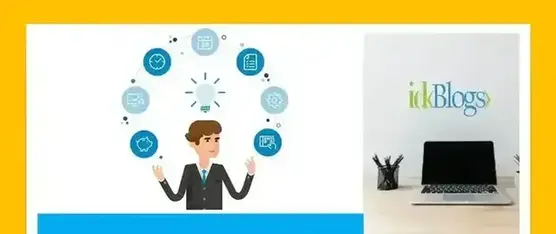

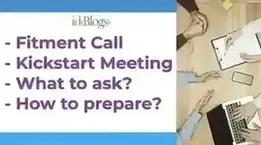

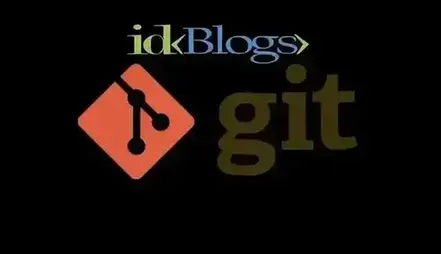
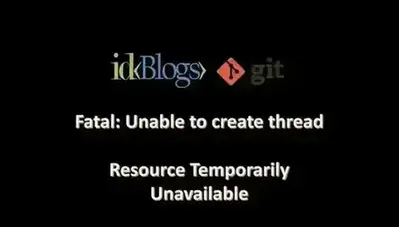
![[Gen AI] Exploring the Potential of Generative AI](../../../images/others/643_what_is_gen_ai/643_what_is_gen_ai.webp)
![[Bitbucket] Automatically assign code owners as pull request reviewers](../../../images/others/642_assign_code_owners/642_assign_code_owners.webp)
